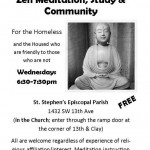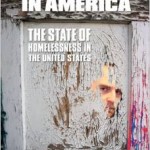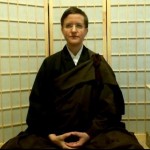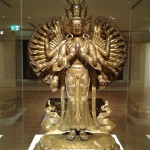 The post I made last week about wearing my heart and doubt on my sleeve has gotten over 600 views so far. Considering that the next-most-popular post in this site has gotten about 50, I find this pretty remarkable. I’ve also gotten phone calls, emails, and heartfelt personal comments in response to my Great Doubt post. What does it mean that my posts about what I know are mildly appreciated, but a post about not knowing what the heck is going on resonates deeply with a large audience?
The post I made last week about wearing my heart and doubt on my sleeve has gotten over 600 views so far. Considering that the next-most-popular post in this site has gotten about 50, I find this pretty remarkable. I’ve also gotten phone calls, emails, and heartfelt personal comments in response to my Great Doubt post. What does it mean that my posts about what I know are mildly appreciated, but a post about not knowing what the heck is going on resonates deeply with a large audience?
As far as I can tell, people – at least the people reading my blog – are deeply caring, thoughtful pilgrims treading more or less the same path that I am. They like answers (preferably in the form of suggestions) they can consider and try out for themselves. But even more than that they appreciate a fellow pilgrim’s description of the journey itself.
It can be incredibly scary to face our doubts and fears at the same time as we acknowledge our indescribable, immeasurable love. Doubts and fears wouldn’t matter so much if we didn’t care. It wouldn’t hurt so much to care if we refused to admit our doubts and fears.
Knowing others are walking the path with us is immensely encouraging. We can summon the courage for the next step when we hear from people who have braved the confusion and come out the other side claiming it was worth it. We can benefit from the wisdom of others – especially when their wisdom is about the process of engaging life, not about answers we can (supposedly) swallow in order to avoid a struggle of our own.
It is important to note that acknowledging doubt, seeing life as a process, and becoming more comfortable with “not-knowing” do not mean that we give up looking for answers and resolutions. In Zen it is said, “Not knowing is most intimate,” but we have to be very careful about what we do with that teaching.
Here’s the Zen story, or koan, in which this teaching appears (here “intimate” is “nearest”):
Dizang asked Fayan, “Where are you going?” Fayan said, “Around on pilgrimage.”
Dizang said, “What is the purpose of pilgrimage?” Fayan said, “I don’t know”
Dizang said, “Not knowing is nearest.”
COMMENTARY: …Nanquan said, “The Way is not in knowing or in not knowing. Knowing is false consciousness, not knowing is indifference.” Now when people hear it said that not knowing is nearest, and that this is where Fayan was enlightened, they immediately go over to just not knowing, not understanding-“just this is it.” They hardly realize that a phrase of the ancients covers everywhere, like the sky, supports everywhere, like the earth. If not knowing is nearest, then what about Heze’s saying, “The one word `knowing’ is the gate of myriad wonders.” Just affirm totally when affirming, but don’t settle down in affirmation; deny totally when denying, but don’t settle down in denial.(1)
Until we die, we never get to stop living. To be most fully alive, we show up with everything we’ve got. We must save the earth. We must work for justice. We must embrace all of humanity with compassion. To do this we must play with knowing and make use of answers even though none of them offer permanent refuge.
What seems to inspire the saints and sages is the bright, living willingness each of us has right here, right now. It has immense power and beauty, defying all description and rational explanation. I think it’s Buddha-nature, the divine, life itself. It is not manifested by resting either in knowing or not-knowing; it manifests in moving forward wholeheartedly.
(1) Case 20, “Dizang’s Nearness,” in the Book of Serenity: One Hundred Zen Dialogues, edited and translated by Thomas Cleary, Shambala Publications, 2005












